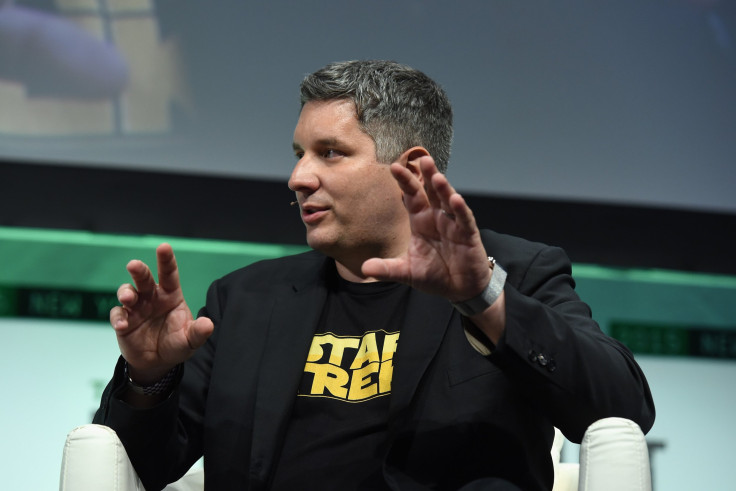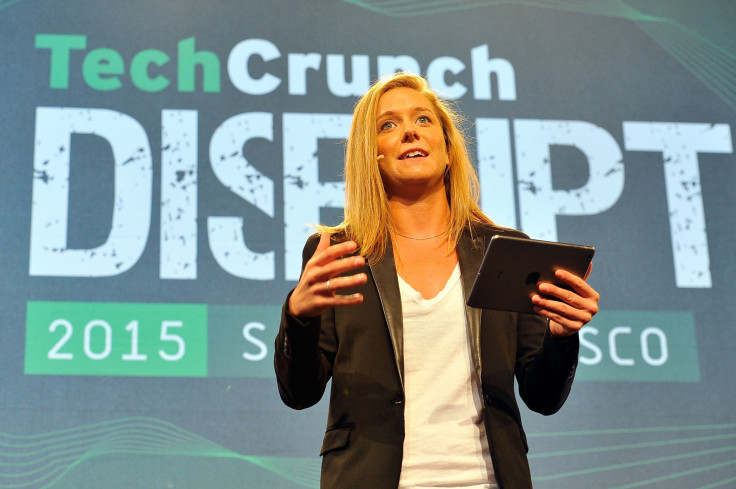TechCrunch Promises Stories To Startups That Win Its 'Pitch-Off,' But Often Fails To Deliver

SAN FRANCISCO -- In the competitive world of tech startups, there are few trophies shinier than landing a story in TechCrunch. That’s why every week, hopeful startups apply to participate in the publication’s Radio Pitch-Off, a contest on SiriusXM where the prize is a TechCrunch story.
The only problem: TechCrunch often fails to deliver the reward.
Since launching its radio show in 2014, TechCrunch has regularly held the contest, asking startups to apply to participate as contestants and then using their minute-long pitches as content for the program. But almost half the time, winners of the Pitch-Off fail to receive their promised pieces, and many who've received their pieces had to be patient and persistent, following up with TechCrunch multiple times to ensure the publication held up its end of the bargain.
“I was definitely proactive,” said Braden Golub, CEO of Spot, a mobile parking app. Golub participated in the contest in December 2014 but did not see his company’s write-up until February. Though Golub received his story two months later, many others are still waiting. International Business Times spoke with numerous startups that have won the contest but have yet to receive their stories.
“It’s important to bring awareness to this for other companies. It’s definitely shady,” said a contestant who won the Pitch-Off earlier this fall. “It just seems like they don’t have their s--- together, frankly.”
The prize is a big part of the marketing for TechCrunch's radio show. "The winner gets a hug and a post on TechCrunch,” John Biggs, East Coast editor of TechCrunch, said recently in a clip on TechCrunch Radio’s SiriusXM channel.
However, data collected by IBT over SiriusXM, SoundCloud, TechCrunch.com, Facebook and Twitter show that nearly half of the winners are still waiting for their articles.
Of all the winners of the Pitch-Off in currently posted clips on SoundCloud and SiriusXM, as well as those that have announced their achievement in social media, 43 percent are waiting for articles. Others that have received them do so months after the airing of the show.
“Wow, we just won the TechCrunch Radio Pitch-Off, and the prize is a story in TechCrunch!” Jennie Wong, CEO of ShoppingQuizzes.com, said on Facebook in August. Yet that story hasn't appeared; ShoppingQuizzes.com is one of at least a dozen Pitch-Off winners that have yet to be featured on the tech news site.

‘They Just Were Shady’
TechCrunch is inconsistent in the way it promises stories. While it mentions the story as a prize on the radio on occasion, the site rarely spells it out it in print. The weekly write-ups urge other startups to apply, but IBT could find only one instance where the trade-off is explicit.
“We deliberate live and eventually crown a winner at the end of the show. Winners are then written up in TechCrunch,” the publication wrote in an April post. That particular promotion has been tweeted and retweeted hundreds of times. A few of those tweets came directly from TechCrunch, and each of those tweets received numerous retweets and likes, spreading word that winners of the contest get a story as the prize.
Companies that apply and are accepted are often informed of the decision over the phone by Michele Musso of SiriusXM Radio, the producer of the Radio Pitch-Off show. In her calls, Musso tells contestants that the winner of the competition gets a prize story, several winners recalled. Musso and TechCrunch, however, rarely reiterate this promise over email. Mostly, Musso deals with participants over the phone, winners said.
Among the winners who spoke with IBT, none said they could find an email where the story is promised, but all of them recall the prize being described by Musso.
“It’s something where they just were shady and just didn’t put anything down in writing with intention of just not writing about anyone because they can’t or they just never had the plan to,” said one of the winners, who still hopes to receive a write-up. “It just feels like of course some of these things could’ve been handled more professionally.”
Responding to IBT, Biggs said TechCrunch does everything in its power to get the Pitch-Off winners their stories, but it is up to the startups to reach out to the publication if they want their story, a step in the process that Biggs said is detailed by Musso.
"We cannot be held responsible for those that don’t contact us," said Biggs, adding that any winners who want their stories can contact him directly. "Startups are run by adults, we all assume, and we cannot chase each one to send us their information. If we don’t get it, we can’t post."
SiriusXM said TechCrunch Radio's episode Tuesday evening will be the last one to air. "It was previously decided the weekly TechCrunch Radio show would no longer continue on SiriusXM," a spokesman for the company told IBT.
Seeking Validation
For winners, getting the promised piece can have a big payoff. When TechCrunch finally got around to writing about Spot, Golub said the article gave his company a huge bump, driving about 2,000 unique visitors to his website and leading to roughly 1,000 downloads of the Spot app. “TechCrunch and any national publication is always very helpful,” Golub said.
But that's just the beginning of the impact. The imprimatur of a TechCrunch write-up carries with it validation. “It’s really important for a startup to be on TechCrunch because the venture capital community and the tech community still see TechCrunch as the filter for what are the hottest, the coolest newest products,” said one startup founder who won the contest but had to wait more than two months for the promised story, which only came after numerous follow-ups.
“The tech and venture capital worlds see an article written by TechCrunch as a sign of success and traction,” said the founder, who declined to give a name out of fear of retribution toward the startup.
The founder said the TechCrunch story drove only a handful of sign-ups for their company, and worse, it included inaccuracies that were left uncorrected for weeks. “Unfortunately any potential investors who looked at that would’ve” seen wrong information, the founder said. The founder admits the story did gain the company “street cred” among other startups but would only recommend applying for the contest to entrepreneurs who want to practice pitching.

Um, Ethics?
Andrew M. Seaman, chairman of the Society of Professional Journalists’ ethics committee, said reporters tread on a gray area of journalism ethics when they promise a story to sources. Journalists who break promises also break the SPJ’s code of ethics, Seaman said.
“You’re basically saying that your editorial decision will be out the window,” Seaman said. “At the same time, I don’t think it would sit too well with people when you say that you’re promising coverage for participation.”
Additionally, any promise a journalist breaks hurts the rest of the journalism community, Seaman said. “It gives you a black eye but then also gives everyone else a black eye,” he said. “If someone approaches those people again in the future and they feel wronged by another journalist or not treated fairly, they may not want to work with other journalists in the future.”
To listen to the show these days, one has to wonder how long TechCrunch will continue to guarantee stories to Pitch-Off winners. On a recent episode of TechCrunch Radio, co-host Jordan Crook aired her frustration with the quality of the startups she and Biggs have received recently.
“To be honest with you, I didn’t love a whole lot of these companies, and I’m not trying to be mean. I just feel like we’re getting a lot of the same stuff over and over again,“ Crook said. “It’s hard to listen to what’s different.”
This article was updated at 1:50 p.m. EST to include comment from SiriusXM.
© Copyright IBTimes 2024. All rights reserved.






















